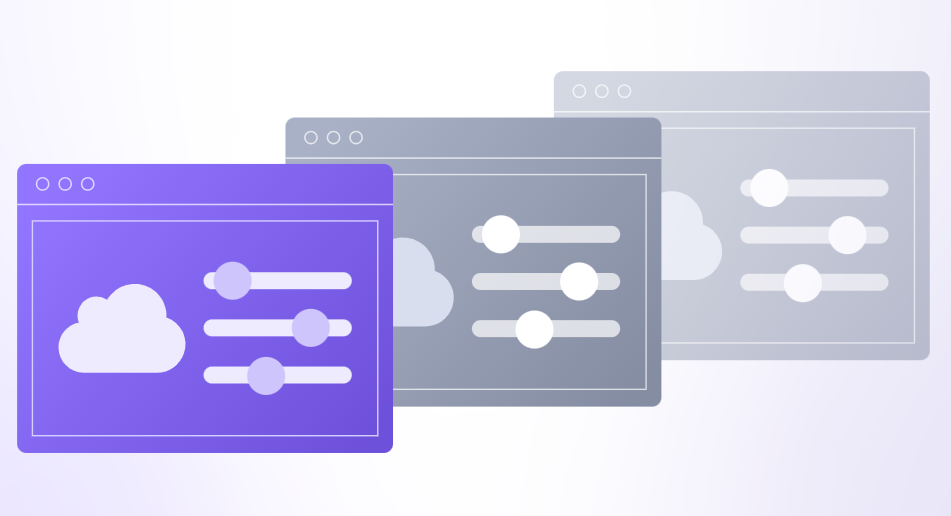Introduction to Management Interfaces
Choosing the appropriate control panel for managing your web hosting environment can significantly impact your day-to-day operations. A good management interface will minimize task complexities, promote security, and, in essence, help improve the operating efficiency of your online services.
Of all the available solutions, cPanel and CWP (Control Web Panel) are the most popular ones, and they have some different opportunities. Regardless of whether you are an owner of a single blog or a large company that maintains several websites, knowledge of what these control panels are capable of and what they cannot do will help to configure web hosting most effectively.
Basically, cPanel and CWP are effective ways to manage web hosts through several application tools for servers, Websites, and mail. These platforms range from text-based, as simplistic as SMS, to voice-based, controlled by the application, and all are developed with a relaxed tone of voice. From file management to database administration, both cPanel and CWP cater to users with varying levels of technical expertise.
While cPanel has built its reputation on being user-friendly and reliable, CWP has gained traction for its flexibility and cost-effectiveness. Every control panel has options covering various web hosting aspects, such as security options, speed optimization, and support materials.
Subsequent sections describe additional features, cost estimates, efficiency indicators, and assistance with cPanel and CWP. This extensive review will help you establish which control panel you want to use for your web hosting in 2025.
cPanel’s Key Features
When it comes to the GUI, cPanel is second to none and is natural for both novice and experienced users. Because of the precise structure of the program, a user can easily switch between several applications for organizing files and documents, working with databases, mail accounts, etc. Its most applauded features are auto SSL for the automatic installation of the SSL certificates and IP address blocklisting to protect from unauthorized access or intrusion into the server environment.
cPanel is regularly updated and enriched with security patches. It is also equipped with powerful backup tools, which can back up your data automatically and manually. The mail system is also worthy of mention; it offers spam filters, email authentication, and mailing lists. Managing tools monitor resource utilization on the servers to ensure proper actions are taken before possible problems arise.
Another remarkable feature is the integration feature, which allows cPanel to incorporate multiple third-party applications and services. Functional flexibility is also evident in the control panel’s scalability, which can respond to growth irrespective of the company offering hosting services’ current scale.
Highlighted Features of CWP
CWP offers a variety of features that make it a strong competitor in the web hosting control panel market. Users are provided strict security settings by which they can easily manage firewalls and secure intrusion detection systems to protect their servers. CWP also triumphs in the sector of server monitorization, offering convenient tools to control different processes on the servers, such as software installations. One of the most optimal aspects that users like in the status feature of Apache server is monitoring the server’s status.
Another area lacking in CWP’s competitors is customization, allowing users to set up their control panel by changing settings to specific demands. It similarly pertains to the interface layer that enables users to adjust the layout and thus add or remove interface modules. The overall design of the CWP dashboard is simple, but there is always more data available if the user wants to explore it.
Nevertheless, CWP provides broad and detailed instruments for MySQL database administration, DNS, and Problem Inner Mail Services configurations. The control panel is highly customizable and backwards compatible, and the design interfaces for creating, modifying, and backing up databases for different database types. DNS management is simplified with built-in tools that allow users to configure their domain settings without hassle.
Further, CWP’s email management is relatively affluent, including spam and anti-virus, email forwarding, and automatic replies. For those who work with multiple domains or websites, CWP has all the necessary tools for domain management, which simplifies work on various projects.
Another fact about CWP is that they all include the active user community—the project team receives constant feedback on new releases, frequently enhances features, and adds new functions. This means that the platform is being developed according to the needs of the user base, making it a flexible and constantly improving tool for web hosting management.
Comparing Prices
The pricing of cPanel and CWP varies significantly, impacting their appeal to different types of users. cPanel operates on a tiered pricing model, where costs escalate based on the number of accounts you manage. This structure can be prohibitive for small businesses or startups with limited financial resources, as higher tiers quickly become expensive. On the other hand, CWP adopts a more accessible pricing approach, offering a free version that covers basic needs and a pro version at a more affordable rate for those who need additional features.
CWP’s free version includes essential tools for managing web hosting environments, making it an attractive option for individuals or businesses on a budget. While not free, the pro version of CWP is competitively priced and offers enhanced functionalities that can benefit more complex hosting requirements. This cost-effective approach allows users to access advanced features without breaking the bank.
The stark difference in pricing models between cPanel and CWP means that your choice will likely be influenced by your financial constraints and the scale of your hosting needs. Although cPanel may come equipped with numerous features that would cost a pretty penny more for more extensive hosting services, CWP’s highly competitive, economical price makes it ideal for users who do not wish to spend any more than they have to yet are not willing to sacrifice the basics for a cheaper service.
Evaluating Performance and Speed
When considering performance and speed, both cPanel and CWP bring robust capabilities. CPanel is built for such loads because, under the hood, it effectively administers the allocated resources. This control panel has also reduced the chances of page latency and retains the sites’ general interactivity despite high traffic.
CWP, on the other hand, is lauded for its resource utilization and quick response times. It offers various performance-enhancing tools that allow administrators to fine-tune their server environments. Users frequently praise CWP for its ability to handle multiple tasks simultaneously without significant slowdowns.
Another critical aspect is how each control panel deals with server load. cPanel load is balanced across resources so that no resource can be a bottleneck by receiving many requests while it can slow down the program flow. CWP also stands tall in this respect and comes with pockets like tools that observe and balance resource usage to ensure speed efficiency is kept high.
Furthermore, both control panels have provided advanced caching mechanism options to enhance the loading speed of websites and applications. While Cpanel works fine with popular caching programs, CWP has its cached plans related to specific requirements. This flexibility allows users to attain faster load times and, hence, better overall performance.
Finally, both cPanel and CWP are fast and provide great functionality for different hosting cases, so they are worth choosing.
Support and Community Resources
cPanel offers extensive support options that can be a game-changer for users. Therefore, it is easy to read and follow due to the detailed documentation, abundance of overall information, and forums that allow the user to find answers to most questions. Moreover, a significant advantage of web hosting control panels like the cPanel is that rich and efficient customer support is always in a position to assist one in case of an emergency.
On the other hand, CWP shines through its community-driven solid support. While it may not match cPanel in official resources, the active user community makes up for it. Sites that have a forum or a group of people dealing with the same problem are full of helpful advice, problem-solving ideas, and, best of all, stories. Many users even provide scripts, plugins, and other materials that can help improve CWP’s performance for its users, which makes it a very useful tool.
CWP also provides the bare minimum in its documentation and some official sources, but that is not the real power of CWP: helping each other. This approach to sharing creates a workplace culture that resonates with the communal spirit, making it easier to tackle challenges and OK-tune your hosting environments.
Both control panels provide multiple support avenues. Still, the choice between them may depend on whether you prefer the structured, professional support of cPanel or the collaborative, community-focused assistance available with CWP.
Conclusion: Choosing the Right Option
Selecting between cPanel and CWP ultimately involves evaluating your specific needs and constraints. cPanel stands out for its intuitive interface and extensive support options, making it a strong candidate for users who prioritize ease of use and comprehensive assistance. It has strong security to protect the hosting from corruption or any other harm and undergoes frequent updates to supply a trustworthy hosting service but at some extra cost.
On the other hand, CWP is flexible and relatively cheaper compared to other software; its cheap nature makes it popular among those who want a framework that they can tweak according to their needs without having to pay through their nose.
It enjoys profound community support and provides features catering to users’ powerful management preferences for web hosting. CWP’s affordable pricing structure, including a free version with essential tools, is perfect for small businesses or individuals on a budget.
Both control panels are well-equipped to handle high-demand situations in terms of performance and speed, though your choice may be influenced by your preference for specific performance-enhancing tools and resource management capabilities.
In conclusion, cPanel is ideal for those who value user experience and professional support, while CWP is suited for users seeking flexibility and economical options. Assess your web hosting requirements, financial limitations, and desired support level to determine which control panel aligns best with your needs in 2025.



